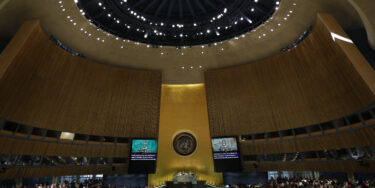Indonesia: Aceh Province Law Expands Caning Punishment to Adultery and Homosexual Acts
28.10.15
(Gender-based discrimination / Tradition, Culture, Religion)
A provincial law on criminal offenses under Sharia law, passed in 2014, came into effect on October 23, 2015, in Indonesia’s Aceh Province, the only part of the country that enforces Islamic Sharia law.
(Aceh Regulation No. 6, 2014, Aceh government website (Oct. 22, 2014).)
The local regulation prescribes a punishment of 100 strokes of a cane for adultery, public displays of affection by unmarried couples, or any homosexual act. The regulation applies to local residents and to foreigners in the province. (Ashley Hogan, Indonesia’s Aceh Province Begins to Enforce Anti-Gay Law, PAPER CHASE (Oct. 23, 2015); Indonesia’s Aceh Introduces Strict Anti-Gay Law, BBC NEWS (Oct. 23, 2015); Reza Munawir, Indonesia’s Aceh Province Enacts Islamic Criminal Code, SYDNEY MORNING HERALD (Oct. 24, 2015).) The canings will be public, reportedly designed to shame those punished. (Munawir, supra.)
The regulation, the Aceh Islamic Criminal Code (Qanun Jinayat), adds to the number of offenses for which caning is a punishment in Aceh. The offenses punished that way under previous provincial regulations include gambling, consumption of alcohol, and fraternizing with the opposite sex outside of marriage. According to Syahrizal Abbas, the Head of the Department of Islamic Sharia of Aceh, the law does not violate the human rights of gay individuals because they can live together as long as there is no sexual relationship. He explained that “[i]t is forbidden because in the sharia context, the act is vile. … It brings [an] unhealthy psychological impact to human development, and it will affect the community.” (Id.; Press Release, Amnesty International, ASA 21/2726/2015, Indonesia: Repeal or Revise All Provisions in the New Aceh Islamic Criminal Code that Violate Human Rights (Oct. 23, 2015) (click on link to download text in pdf).)
Other Sharia-influenced regulations in the province include requirements that boys and girls be educated separately and that Muslim women wear a hijab (a scarf that covers the hair but not the face) and not straddle a motorcycle when riding with a driver. (Id.) Since June 2015, under an order from the mayor of Banda Aceh, the provincial capital, restaurants, sports venues, Internet cafes, and tourist attractions in the city are forbidden to host or serve women after 11:00 p.m., unless those women are accompanied by a male relative. (Constance Johnson, Indonesia: Curfew for Women in Provincial Capital, GLOBAL LEGAL MONITOR (June 16, 2015).)
By Constance Johnson
Read the full article on the website of the Library of Congress



